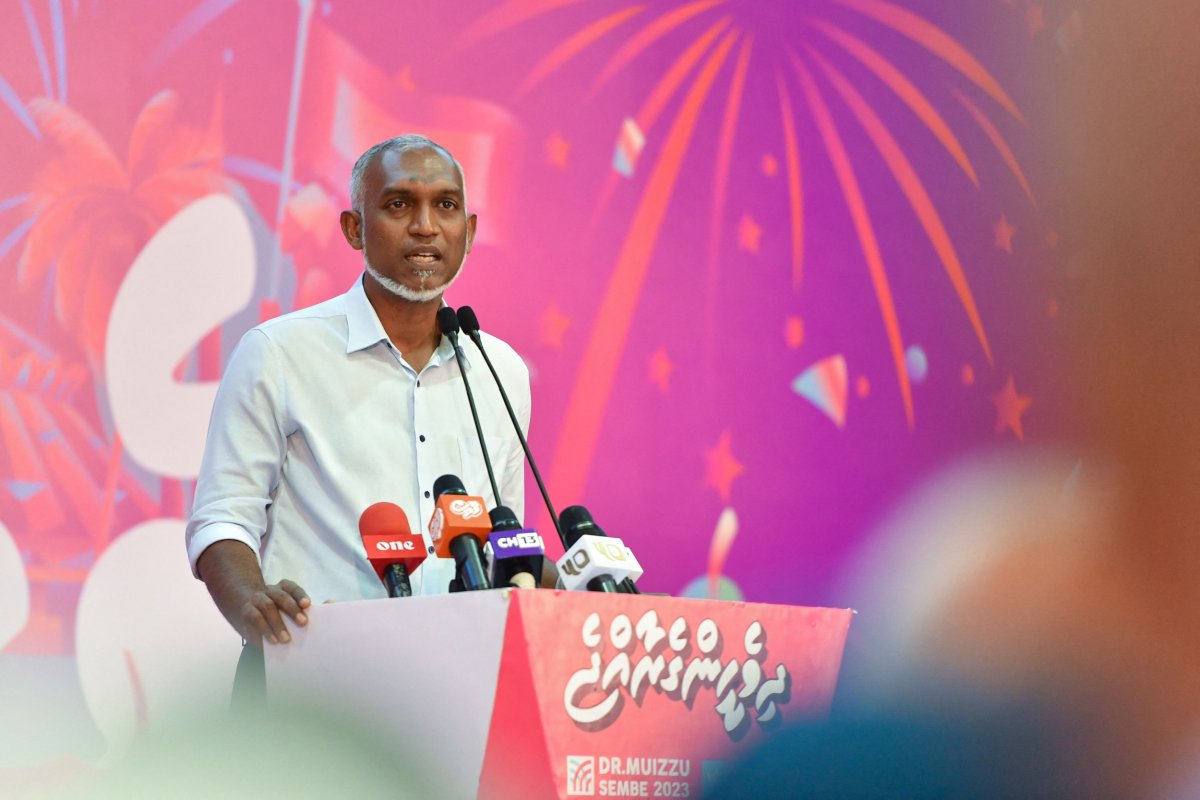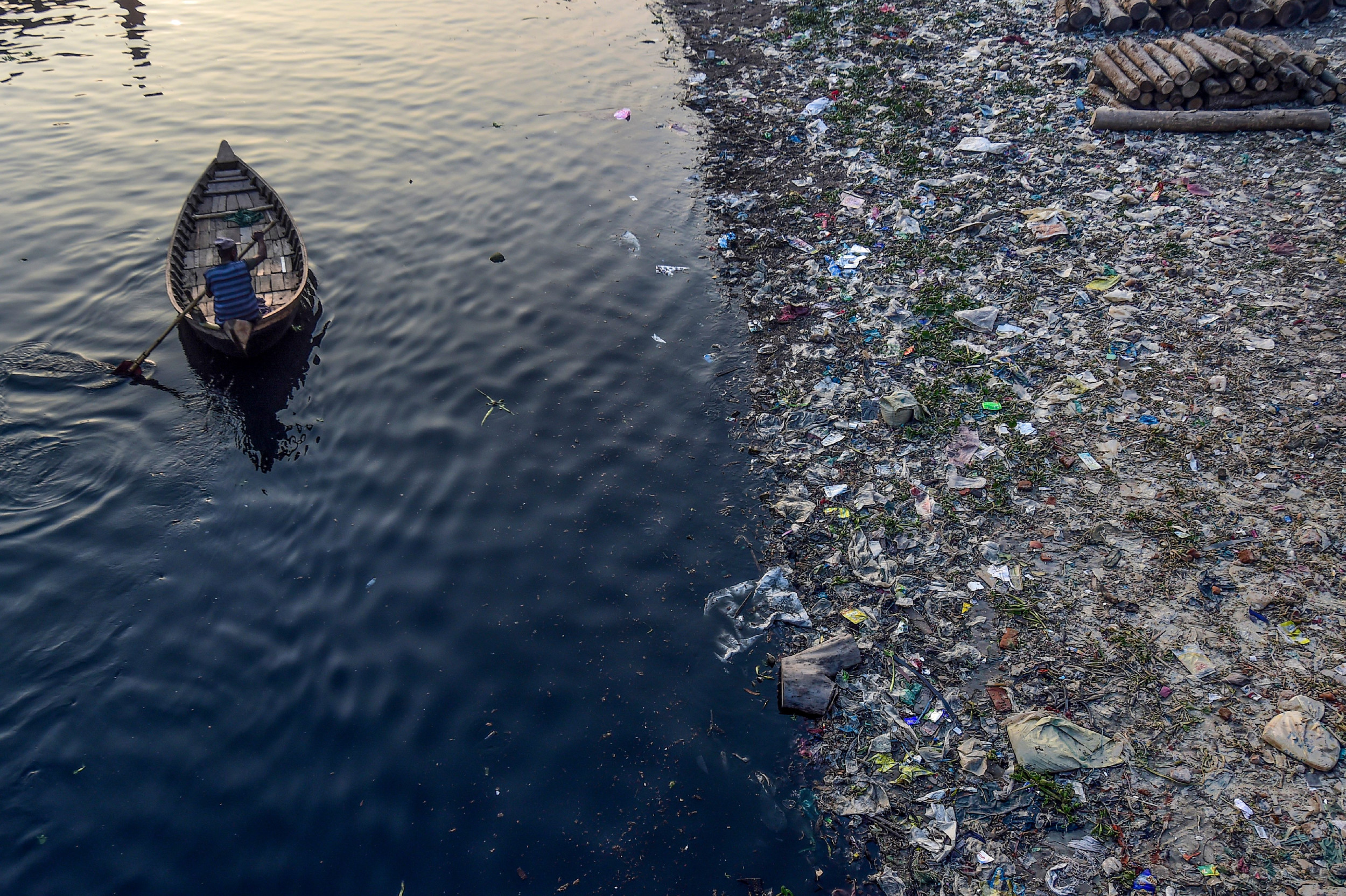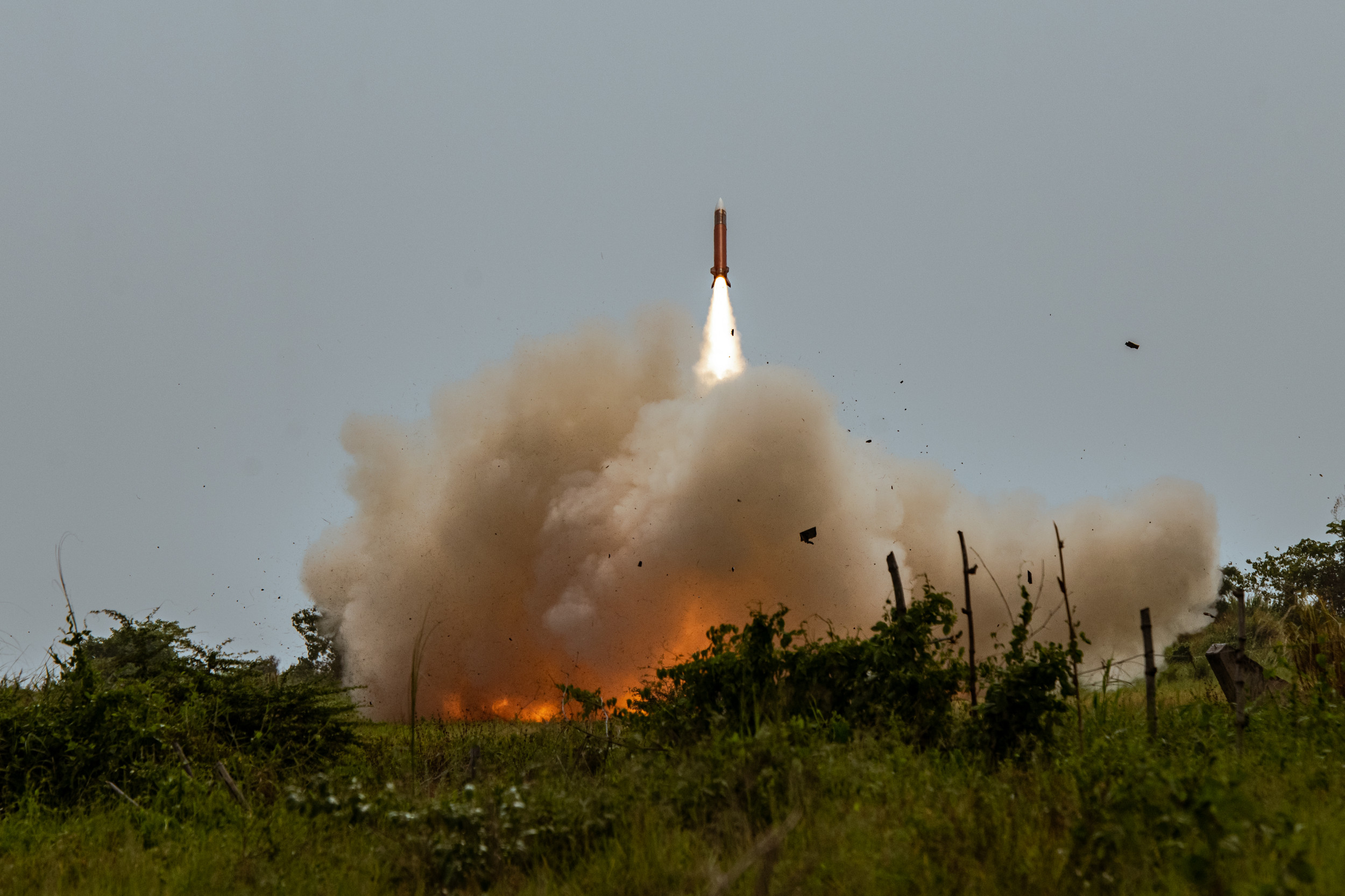The election of Mohamed Muizzu in the Maldives over the weekend has set the stage for a fresh geopolitical contest in the Indian Ocean.
Muizzu, 45, the mayor of Maldivian capital Malé, won Saturday's presidential poll with 54 percent of the vote, according to the country's election commission, defeating incumbent President Ibrahim Mohamed Solih.
The Maldives may offer tourists deep blue waters and white sand beaches, but the South Asian nation could soon find itself in the middle of a great power rivalry that promises to shake up politics across the archipelago, with potentially far-reaching implications for its traditional partner, India, as well as the United States and China.
China's state media have welcomed Muizzu's victory as a win for Beijing and a blow to both Washington and New Delhi. "India suffers major diplomatic setback," read one headline in Beijing Daily, the Chinese capital's official newspaper, which identified the United States and India as China's "only two strategic competitors."
The Maldives has yet to feature as a major destination for Chinese tourists or businesses, but that could change under Muizzu, who has been tagged as "pro-China" before assuming the presidency next month. The Sinamalé Bridge—formerly known as the China-Maldives Friendship Bridge because of Chinese funding via its Belt and Road Initiative—remains a symbol of Beijing's growing influence in the island nation.

China's reach into the Maldives is not new. Five years ago, Maldivians voted out their former leader Mohamed Yameen, who was widely seen as having borrowed an unsustainable level of funds from Beijing. Yameen was described as the "poster child" of China's so-called debt trap diplomacy.
The Maldives owes $935 million in sovereign guarantees on Chinese company loans and an additional $600 million directly to Beijing. In 2019, Mohamed Nasheed, an adviser to President Solih, said Malé could be as much as $3 billion in the red—a massive amount of debt for a country with a gross domestic product of $4.9 billion.
Muizzu has begun setting the tone of his upcoming presidency, starting with a promise to expel all foreign military forces from the Maldives. It was a reference to the presence of Indian soldiers stationed there, who were the subject of protests in 2021.
"Therefore, what I have to say to the ambassador [of India], who will come to meet me, is close relations can be maintained based on this condition," Muizzu said in his victory speech.
Wang Lixin, China's ambassador to Malé, offered President Xi Jinping's "warm congratulations" in a social media post on Tuesday.
Reached by email on Tuesday, the Chinese Embassy in Washington, D.C., sent Newsweek a statement about Sri Lanka instead.
A New Front for Competition
India has traditionally viewed the Maldives as part of its Indian Ocean sphere of influence and has maintained a small contingent of Indian troops on the archipelago for what it describes as humanitarian purposes. In May, Rajnath Singh, India's defense minister, laid the foundation at a new harbor project west of Malé, funded by New Delhi, that was hailed as a major step forward in defense cooperation.
And in the south of the Maldives, India built a new police training academy and drug rehabilitation center as part of its counter-piracy contributions in the Indian Ocean. Yet there is suspicion in Maldivian society about the geostrategic rationale behind India's presence—and a desire to balance the relationship by forging closer ties with China, too.
"Although around 75 in number, mostly technicians and pilots, the consistent disinformation campaign has camouflaged Indian soldiers as a threat and violation of Maldivian sovereignty," said Aditya Gowdara Shivamurthy, an associate fellow at the Observer Research Foundation think tank in New Delhi.
"In terms of the Indo-Pacific, the competition will continue to brew. The Maldives will be no exemption to this. Both India and China will compete against each other and will try to appease the government. The government, on the other hand, will leverage this and exercise more and more agency," Shivamurthy told Newsweek.
Prime Minister Narendra Modi of India congratulated Muizzu on his victory. "India remains committed to strengthening the time-tested India-Maldives bilateral relationship," he wrote on X, formerly known as Twitter, on Sunday.
The United States likewise has yet to signal any public unease about the future of its relations with the Maldives. It congratulated the president-elect on Sunday in a press release issued by the U.S. State Department.
"And for the U.S., the change in leadership probably won't amount to much given that Washington does not have a particularly robust partnership with Malé. It is more likely that the U.S. will leverage its strengthening partnership with India to ensure that China does not gain a military foothold in the island nation," Derek Grossman, a senior analyst at the RAND Corp. think tank, told Newsweek.
For China, Muizzu's election would be a "renewed opportunity for economic and security engagement as Muizzu is a close political ally of Abdulla Yameen," he said.
The Maldives' new leader could also struggle to pursue an outright "pro-China" agenda "because of unexpected events and the real consequences of putting his views into practice," Grossman said.
The strategic importance of the Maldives, as with other countries and regions closer to home, was evident when President Joe Biden nominated the U.S.'s first ambassador to Malé in July 2022. Hugo Yon's appointment was not confirmed by the U.S. Senate until one year later. He began serving in Malé last month.
Newsweek didn't receive a response from Muizzu's campaign before publication. The Chinese Embassy in Washington, D.C., didn't respond to a written request for comment.
Update 10/4/23, 5:00 a.m. ET: This article was updated with additional context.
Uncommon Knowledge
Newsweek is committed to challenging conventional wisdom and finding connections in the search for common ground.
Newsweek is committed to challenging conventional wisdom and finding connections in the search for common ground.
About the writer
Aadil Brar is a reporter for Newsweek based in Taipei, Taiwan. He covers international security, U.S.-China relations, and East Asian ... Read more
To read how Newsweek uses AI as a newsroom tool, Click here.








